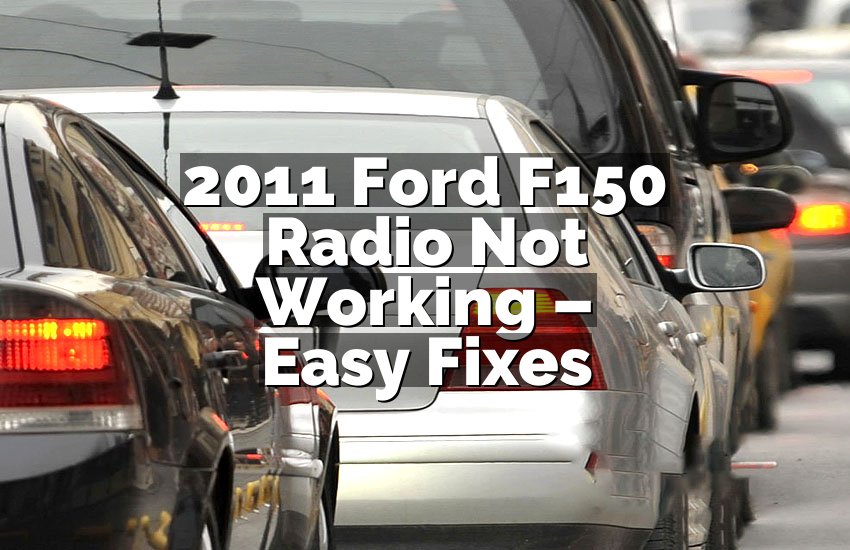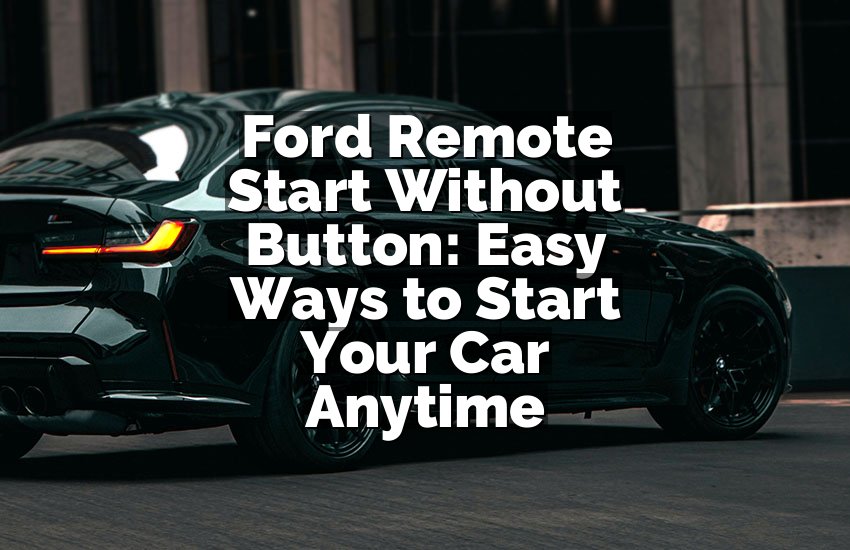You want to tow something big, like a trailer, boat, or camper, and you have a Ford F150. You may wonder, “How much can I tow with a Ford F150?” The good news is, this truck is built tough and can handle a lot! But the exact amount depends on a few things, like the truck’s model, engine, and setup. In this article, I will explain everything you need to know about towing with a Ford F150 so you can feel safe and confident on the road.
Understanding Ford F150 Towing Capacity
The first thing to know is that not all Ford F150 trucks tow the same amount. The towing capacity is how much weight your truck can safely pull behind it. This includes the weight of a trailer plus anything loaded on it. Towing too much can damage your truck or cause accidents, so it is very important to know the right limits.
Ford has made many F150 models with different engines and options, so the towing capacity changes. For example, a basic F150 with a smaller engine can tow less than a big, powerful one with extra towing packages. Usually, the towing capacity ranges from about 5,000 pounds to over 13,000 pounds, depending on the truck.
Your truck’s towing capacity is written in the owner’s manual and on a sticker inside the driver’s door. It tells you the maximum weight your truck can safely tow without risking damage or losing control. You should always check this before hooking up a trailer.
A few key parts affect towing:
- Engine size and type (like V6 or V8)
- Transmission type
- Axle ratio (this affects how much power goes to the wheels)
- Whether you have a towing package installed (this adds extra features like better cooling, brakes, and hitch support)
- Truck bed length and cab size (these can change the truck’s weight and balance)
Knowing all this helps you understand your truck’s towing limits.
- Towing capacity varies a lot by engine and model.
- Check your owner’s manual or door sticker for your truck’s number.
- Towing too much can be unsafe.
- Key parts like engine, transmission, and axle ratio affect towing.
- Towing packages improve your truck’s ability to tow heavier loads.
Choosing the Right Engine for Towing
When you think about how much you can tow, the engine is a big part of the answer. Ford offers different engines for the F150, and each one has different power. Power means how much the engine can push your truck and trailer forward.
One popular engine is the 3.5-liter EcoBoost V6. It uses turbochargers to give extra power without using too much gas. This engine can tow up to around 13,200 pounds when properly equipped. That’s enough to pull big trailers, boats, or campers.
Another common choice is the 5.0-liter V8 engine. It has strong, steady power and can tow up to about 11,600 pounds. Some people like the V8 because it feels strong and simple to use.
There is also a smaller 2.7-liter EcoBoost V6 for light towing. This one can handle about 8,500 pounds, which is good for smaller trailers or light work.
Choosing the right engine depends on what you need. If you plan to tow big loads often, the 3.5 EcoBoost is a great choice. If you tow smaller things or want better fuel economy, the 2.7 EcoBoost may be enough.
- Engines have different power levels and towing capacities.
- 3.5 EcoBoost V6 can tow up to 13,200 pounds.
- 5.0 V8 can tow about 11,600 pounds.
- 2.7 EcoBoost is good for lighter towing, around 8,500 pounds.
- Pick an engine based on what you plan to tow.
How Towing Packages Help Your Ford F150
Not every F150 is ready to tow big loads straight from the factory. That’s why Ford offers towing packages you can add. These packages give your truck special parts and features to make towing safer and easier.
A towing package usually includes:
- A stronger hitch receiver that connects the trailer to the truck.
- A trailer brake controller, which helps control the trailer’s brakes.
- Heavy-duty cooling systems so the engine and transmission don’t overheat when pulling heavy trailers.
- A wiring harness to connect trailer lights and signals.
- Larger or stronger rear axles for better strength.
- Sometimes upgraded suspension to handle more weight.
Having a towing package can increase your truck’s towing capacity by a good amount. For example, a 3.5 EcoBoost without a towing package might tow 9,000 pounds, but with the package, it can tow over 13,000 pounds safely.
If you tow a lot, it’s smart to have a towing package. It helps keep your truck from getting damaged and gives you more control when driving with a trailer.
- Towing packages add stronger hitch and brakes.
- They improve cooling for heavy towing.
- Packages raise your towing limits.
- Wiring for trailer lights is included.
- Good for people who tow often or heavy trailers.
Calculating Your Total Tow Weight
Knowing the towing capacity is one thing, but you also need to figure out how much your trailer and load actually weigh. This is called your total tow weight, and it includes everything behind your truck.
Your total tow weight includes:
- The weight of the trailer itself (empty).
- Any cargo or items loaded on the trailer.
- People or animals in the trailer.
- Extra gear like bikes, tools, or furniture.
It is important to never exceed the maximum towing capacity of your F150. If you do, your truck may struggle to stop, steer, or stay safe on the road.
One easy way to know your trailer’s weight is to look at its “GVWR” or Gross Vehicle Weight Rating. This number is on the trailer and tells you the heaviest the trailer can be when fully loaded. You want to make sure your truck’s towing capacity is equal to or higher than this number.
Also, consider the “tongue weight,” which is the downward force the trailer puts on the hitch. Usually, tongue weight should be about 10-15% of the total trailer weight. This helps keep the trailer stable and your truck balanced.
Always weigh your trailer at a scale station if possible before hitting the road, especially if you added extra cargo.
- Total tow weight includes trailer plus everything on it.
- GVWR shows the max trailer weight allowed.
- Don’t exceed your truck’s towing capacity.
- Tongue weight should be 10-15% of trailer weight.
- Weigh your trailer with cargo before towing.
Safe Driving Tips When Towing With Your F150
Towing is not just about how much your truck can pull but also how you drive when towing. Pulling a heavy load changes how your truck handles, stops, and turns. Driving carefully is key to staying safe.
When towing with your Ford F150:
- Always drive slower than usual. Heavy loads take longer to stop.
- Keep more distance between you and other vehicles.
- Use your mirrors often to check the trailer and traffic.
- Avoid sudden moves like quick lane changes or sharp turns.
- Use lower gears when going downhill to help control speed.
- Practice braking early and gently.
- Check your trailer brakes if it has them and adjust as needed.
- Be extra careful in bad weather or strong winds.
Also, before driving, make sure your trailer is hooked up properly. Check that safety chains are connected, lights work, and tires are in good shape.
Following these tips helps protect you, your truck, and other drivers on the road.
- Drive slower and keep more distance.
- Watch your mirrors carefully.
- Avoid sudden stops and turns.
- Use lower gears on hills.
- Check trailer brakes and lights before driving.
- Be cautious in bad weather.
- Secure safety chains and hitch properly.
Maintaining Your Ford F150 for Best Towing Performance
Towing puts extra stress on your truck, so regular care and maintenance are very important. Keeping your Ford F150 in good shape helps prevent breakdowns and keeps towing safe.
Some key maintenance tips include:
- Check engine oil and transmission fluid often, because towing can heat these up.
- Keep your cooling system clean and full so the engine stays cool.
- Inspect brakes frequently, both on the truck and trailer.
- Make sure tires have the right pressure and good tread for heavy loads.
- Check suspension parts for wear or damage.
- Grease and lubricate the hitch and moving parts.
- Have your truck’s towing equipment inspected yearly by a professional.
Also, follow Ford’s recommended service schedule. They know how to keep your truck ready for towing.
Proper maintenance helps your F150 last longer and tow safely every time.
- Regularly check oil, transmission fluid, and cooling.
- Inspect brakes and tires often.
- Maintain suspension and hitch parts.
- Follow Ford’s service schedule.
- Keep your truck clean and ready for towing.
Final Thoughts
Towing with a Ford F150 is a powerful and useful skill, but it comes with responsibilities. Knowing exactly how much your truck can tow, choosing the right engine and package, calculating your trailer weight, and driving safely all make a big difference. Taking care of your truck with regular maintenance also keeps it strong for towing heavy loads. When you understand these things, towing becomes easier and less stressful. Your Ford F150 is ready to work hard for you — just give it the right care and respect for the job.
Frequently Asked Questions (FAQs)
Is it safe to tow at maximum capacity every time?
Towing at the maximum capacity is technically allowed but not always the safest choice. Regularly towing at full capacity can put extra strain on your truck’s engine, transmission, brakes, and suspension. It may cause parts to wear out faster or overheat. For safety and longer truck life, it’s best to stay a little under the maximum towing limit. This way, you have a safety margin for emergencies, hills, or heavy traffic situations.
Can I increase my Ford F150’s towing capacity?
You cannot increase the official towing capacity of your Ford F150 beyond what Ford states for your model. However, adding towing packages or upgrades like a better hitch, trailer brakes, or cooling systems can help you tow closer to the truck’s rated capacity safely. Never try to tow more than the maximum limit listed in your manual or door sticker, as this is unsafe and can damage your truck.
Do I need special brakes for my trailer?
Most trailers over a certain weight (usually 1,500 pounds) require their own brakes. These trailer brakes connect to your truck’s brake system through a controller. They help slow down the trailer, making stopping safer and easier. Using trailer brakes reduces wear on your truck’s brakes and improves control. Check local laws, as some places require trailer brakes by law.
Is it better to have a V6 or V8 for towing?
Both V6 and V8 engines can tow well, but they have differences. A V6 EcoBoost engine uses turbochargers to give strong power with better fuel efficiency. A V8 usually offers steady, traditional power but may use more gas. If you tow very heavy loads often, a V8 might feel more reliable, but many people find the V6 EcoBoost more than enough for most towing needs.
Can I tow a camper with a Ford F150?
Yes, many Ford F150 trucks can tow campers if they stay within the towing capacity limits. Small to medium campers are easy to tow with an F150 equipped with the right engine and towing package. Be sure to check your camper’s weight and compare it to your truck’s towing capacity before hitting the road.
Do I need to use a weight distribution hitch?
A weight distribution hitch is not always required but is very helpful when towing heavy trailers. It spreads the trailer’s tongue weight evenly across your truck’s axles. This improves handling, steering, and braking, especially on rough roads or hills. Using one can also prevent your truck’s rear from sagging and keep the front wheels firmly on the ground for better control.
Is regular maintenance different when towing often?
Yes, towing often means your truck works harder. You should check fluids like oil and transmission fluid more frequently, inspect brakes and tires regularly, and keep the cooling system in good condition. Regular maintenance is key to preventing problems caused by extra heat and stress when towing heavy loads.
Can I tow in bad weather with a Ford F150?
You can tow in bad weather, but you must be extra careful. Rain, snow, or wind makes stopping and controlling your trailer harder. Drive slower than normal, allow more space between vehicles, and use lower gears on hills. Make sure your trailer lights and brakes work perfectly before driving. If weather conditions are very bad, it’s safer to wait or avoid towing until it improves.


